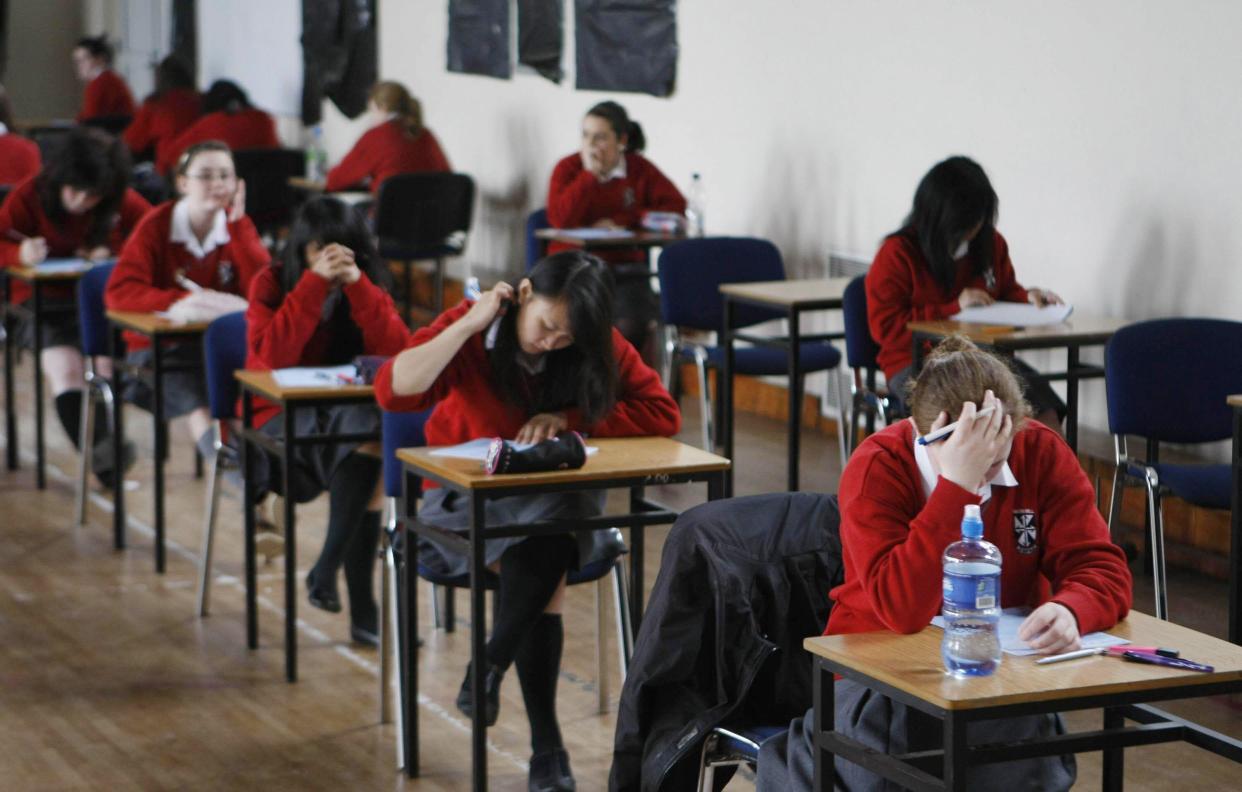Can you pass a GCSE maths exam?

The government has defended its Sats tests for 10 and 11-year-olds after claims that an English exam paper reduced some pupils to tears.
Hundreds of parents and teachers complained after a reading exam last Wednesday for Year 6 students in England.
Sats, or Standard Assessment Tests, are used to measure children’s English and maths skills in Year 2 and Year 6, and consist of six 45-minute papers.
But last week's reading paper was criticised by teachers, parents and teachers' unions for being too tough.
How well would you do in a GCSE maths exam? Yahoo has compiled these recent questions from exam board AQA's foundation mathematics papers:
Kerry Forrester, a headteacher at a Cheshire primary school, wrote to her local MP expressing concern about the “negative impact” of the exams on the “mental health and wellbeing” of her pupils.
In a letter she shared on Twitter, Ms Forrester wrote: “Tears flowed from our most capable readers and stress levels rose amongst all others.
"This was the most challenging reading test I have seen in my 29 years as a teacher."
But the government defended the paper, with a spokesperson for the Department for Education (DfE) saying on Friday: “The tests are designed to be challenging in order to measure attainment across the ability range, including stretching the most able children.
“Schools should always encourage pupils to do their best but preparing for primary assessments should not be at the expense of children’s wellbeing.”
But the National Association of Head Teachers expressed concerns over the reading paper and plans to raise the issue with schools regulator Ofqual.
Read more: Report says GCSE and A-Levels should be scrapped
Sarah Hannafin, the union’s head of policy, said: “We are very concerned about reports from our members about the Sats reading paper.
“Members have told us that the choice of texts was not accessible for the wide range of experiences and backgrounds children have and the difficulty was beyond previous tests, leaving children upset, and with even staff struggling to understand the questions."
The controversy over Sats comes as secondary school pupils start their GCSE exams from Monday.
Pupils have been told their grades will be protected from disruption caused by COVID.

The coronavirus pandemic led to an increase in top grades in 2020 and 2021, when results were based on teacher assessments instead of exams.
Ofqual said on Monday that this year's exams will be a "step back to normal".
Some of the support measures and adjustments introduced during the pandemic will be removed and scaled back.
Ofqual head Dr Jo Saxton said examiners will use data to set grade thresholds that were “fair to students”.
She told the BBC: “There’s no doubt that the pandemic has cast a long shadow, and that’s partly why we’ve put some protections in place.
“A student should be able to get a grade that they would have got had there not been a pandemic, even if the quality of their work is a little bit weaker."
Students in England have not been given advance information about the topics they were likely to be tested on, as they had during COVID.
With that measure removed, grades this year are expected to fall back in line with results from 2019.
However, some COVID measures remain in place, including the spacing apart of exams and GCSE students being given formulae and equations in some subjects.
Outside England, grades are expected to remain higher than they were in 2019 due to exam regulators in Scotland, Wales and Northern Ireland maintaining COVID-era modifications.
Watch: Anger as GCSE results show widening north-south divide


